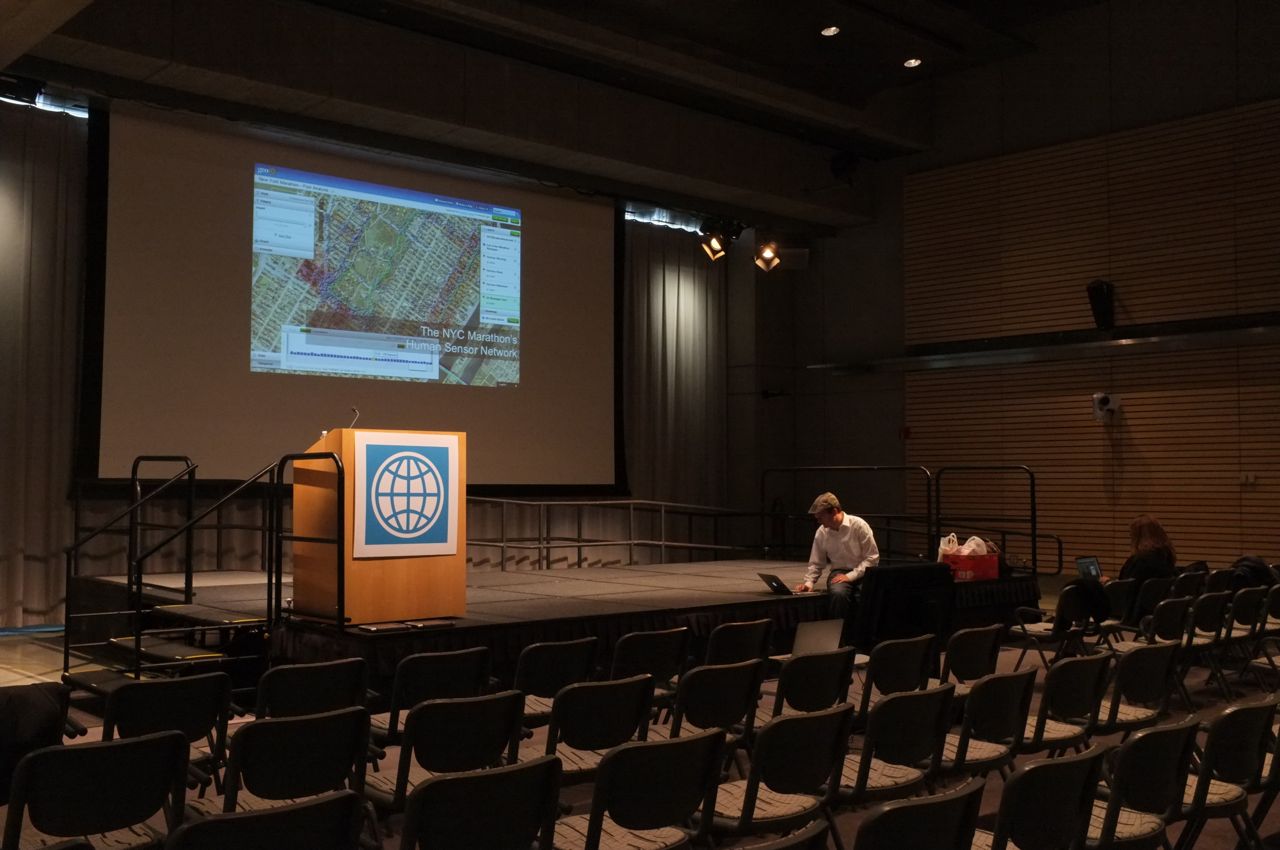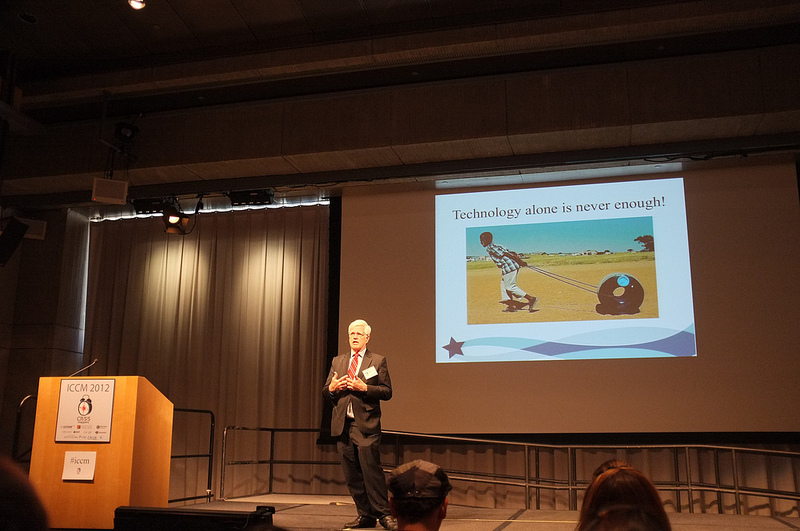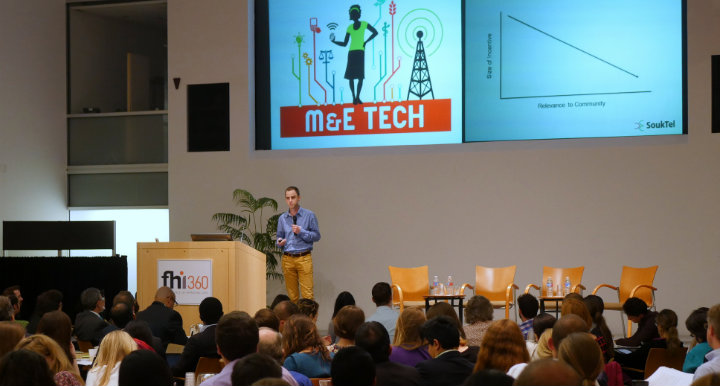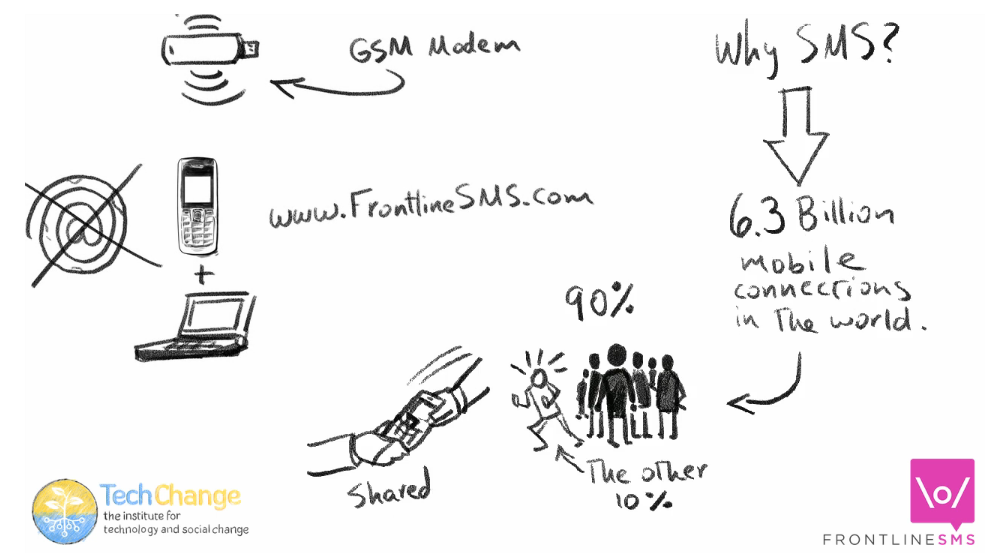Best practices conferences are critical to the growth of any community. The sharing of ideas and capturing of collective lessons-learned allows for those both in attendance, and those reading any after-action report, to proceed with their respective related projects having gained new insight, or having made new partnerships with other like-minded individuals and organizations. However, just as websites are now building responsive design as “mobile first” and desktop second, it’s time to start thinking about these events differently. No longer should we think only about planning offline events that “we webcast,” but rather about global conversations facilitated by online engagement that have an in-person conversation or presentation at its core.
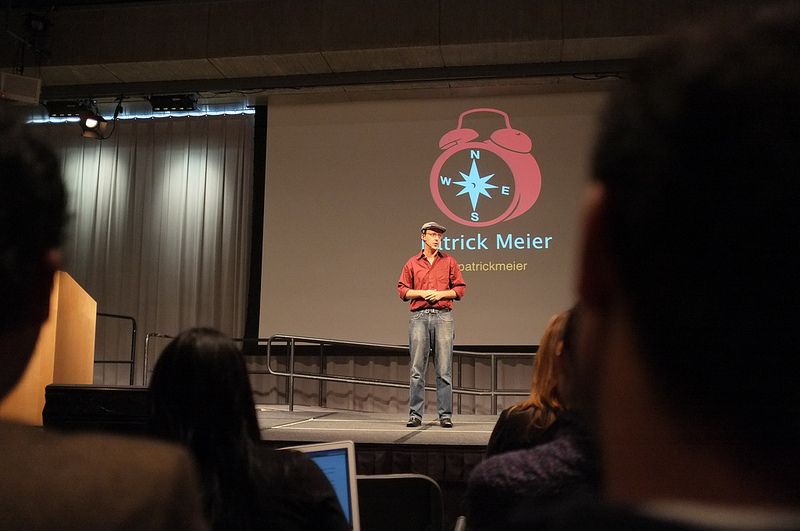
Patrick Meier, co-founder of CrisisMappers, Digital Humanitarians & Standby Task Force speaking at the ICCM
In no community of practice is this more true than with Volunteer Technical Communities (VTC’s) like crisis mapping, which depend on the goodwill, real-time information, and online cohesiveness that can be properly augmented by online engagement. And keeping in line with both the principles of crowdfeeding and the fostering of global online learning communities, this past week’s International Conference of Crisis Mappers exemplified the benefits of online integration, as mappers and technologist from around the globe gathered both online and in Washington, DC for four days of conversation. By providing the global VTC with the ability to engage via a live webcast and an interactive chat forum, the information shared in the halls of the World Bank shifted from being mostly for the benefit of conference attendees, to truly engaging with the global community of crisis mappers.
By livestreaming the event, the ICCM’s webcast enabled the inclusion of over 950 additional attendees – almost doubling their audience!
Looking ahead, it isn’t just the Crisismappers team that would be best served to continue focusing on this level of digital engagement. In many ways they are thought leaders in this field through their engagement with online learning communities. However, other international organizations that focus on issues such as open governance and transparency often fail to lead by example on these issues, holding conferences that are limited to small audiences, and comprised only of individuals who can afford the time and airfare necessary to be in attendance. As distance learning practitioners, we feel strongly that effectively used learning tools can act as a driving force for social change. And in the case of live events – by bringing more voices to the table in low-cost way, simple information sharing mechanisms such as this can enable otherwise disparate communities and engaged individuals to be both teachers and students, sharing in the collective learning experience.
Today, the barriers to entry with this kind of online engagement are so low, that all takes is a bit of planning and a small amount of technical know-how to get up and running. I would even wager that the cost of breakfast at your event is significantly more than that of ensuring web connectivity and online involvement. And while communities of practice used to be local because business and organizations were local; today, globally minded organizations must ensure global engagement, as technology has reached a point at which there’s almost no excuse for allowing only those within a close geographic proximity access to your event. As we said – leave the bagels, keep the connectivity.*
*TechChange would still be delighted to eat breakfast at your local Washington, DC event, including bagels if that’s what is on the menu.

